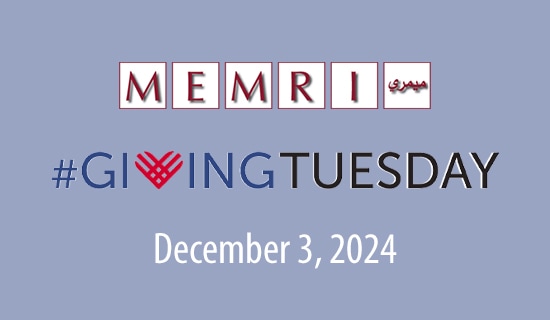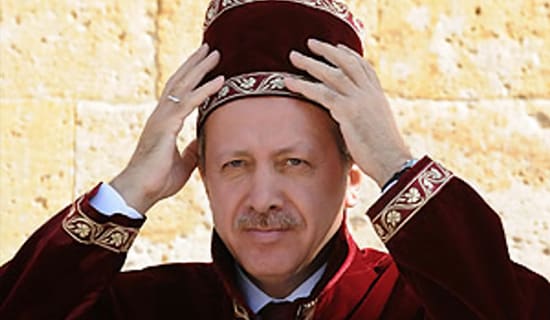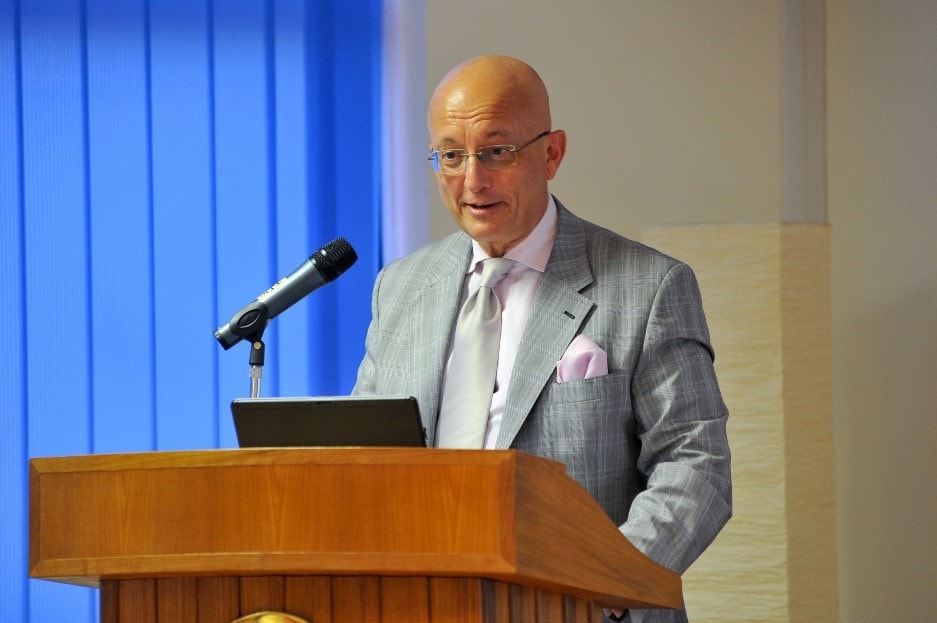The parallels are eerie. The same week in October 2021 that a heavily armed "protest" by Hizbullah and its allies in Beirut against an independent judge turned violent, another Iran-controlled militia in Iraq – Kataib Hezbollah – is threatening Iraqi judges over certifying election results that were not fully satisfactory to the factions closest to Iran.

Pro-Iran "protestor" using a rocket propelled grenade launcher in Beirut, October 14, 2021
The preliminary results of Iraq's October 10 parliamentary elections showed that the coalition of the most pro-Iranian militia/death squads/parties – the Fatah Alliance – did poorly, losing many seats. Also losing was the pro-Iran alliance led by Ammar Al-Hakim, which also lost many seats. But the purported "winners" also have Iranian ties; Muqtada al-Sadr's alliance came in first place and former Iraqi prime minister Nuri Al-Maliki's State of Law Coalition rebounded somewhat from the disastrous results it obtained in the 2018 elections.[1]
Muqtada Al-Sadr's movement provided some cover for Iraq's demonstrators in 2019, and Al-Sadr's fighters clashed with and even killed supporters of anti-demonstrator pro-Iran militias such as Asaib Ahl Al-Haq. But Al-Sadr's support for demonstrators was not open-ended, particularly when they seemed to take a more pronounced anti-Iran tone. The charismatic cleric clearly strikes an Iraqi nationalist pose when needed, but also seems to reliably bend to Iran's wishes when really needed. Al-Maliki, a longtime collaborator with the Americans, is also a longtime collaborator with Iran. Even Sunni and Kurdish parties that won seats have a history of working with Iran's hegemons, though their hearts may not be in it. One can make the case that most leaders in Iraq have been co-opted by Iran to greater or lesser extents. Some are reluctant partners, while others are enthusiastic ones.
Despite that grim reality, i.e. that Iran has many levers to pull in Iraq, this week Abu Ali Al-Askari, a leader in the feared Kataib Hezbollah death squad, took to social media to warn Iraqi judges about problems with voting machines and the need for judges to maintain their clean records. He also accused members of Iraq's Intelligence Service of inflating the numbers of the Emtidad movement – which is connected to mostly Shia protestors against Iran and certainly does constitute a political challenge to the Iranian project in Iraq. Emtidad may have won up to 10 seats in the 329 member Iraqi legislature, five of them in the mostly Shia (and very poor) Dhi Qar governorate in Southern Iraq.[2] A small number of voices to be sure, but voices that Iran does not control.[3] The Fatah Alliance is not done with trying to get the authorities to give them a bigger share of the political pie in Iraq, even though Iran can build a new government sympathetic to Iran using Al-Sadr or Al-Maliki or even current Prime Minister Mustafa al-Kadhimi.[4]
If Iran's proxies were concerned about 10 parliamentarians, in Lebanon Iran's proxies seems to be concerned about one judge. Judge Tarek Bitar only took over the investigation of the Beirut Port explosion earlier this year, after the previous judge was removed at the request of two former government ministers connected to the Amal party of Nabih Berri, a close ally of Hizbullah.[5] Even though many Lebanese already believe that there was a Hizbullah connection to the blast (one explanation was that this was a shipment of nitrates used in barrel bombs against Syrian cities during that country's civil war), the idea of a judge actually clarifying the case and fingering some corrupt officials – a category of which Lebanon has a surplus – seems to have become a Hizbullah redline. This led to a violent provocation in Beirut on October 14, as Hizbullah and Amal opened fire on unnamed assailants, even firing rocket propelled grenades at office buildings. Lebanese Forces leader Samir Geagea sarcastically noted on Twitter that he thought that Hizbullah had nothing to do with the explosion, but that after the day's events, he was not so sure.
The fact that Hizbullah and Amal thugs attempted to aggressively show force in Christian parts of Beirut, blame a Christian party for escalating tension, and appeared to have been repulsed (the facts are unclear) has heightened sectarian feeling, although the whole event has a sense of fabricated theater about it.[6] But the "clashes" certainly escalated Christian-Shia tension, a reality which places tremendous pressure on Lebanon's seemingly senile president Michel Aoun and his ambitious son-in-law Gibran Bassil, who aspires to become president in 2022 with the help of Hizbullah. Their Free Patriotic Movement (FPM) is closely allied with Hizbullah and poses as the great protector of Lebanon's remaining Christians. The clashes and rhetoric make maintaining both of those poses difficult.[7] Expectations are that somehow the government will shut down Judge Bitar's investigation, a victory for Hizbullah, perhaps by transferring it to the military justice system.
Why have Hizbullah in Lebanon and its counterparts in Iraq, near hegemons in both countries, reacted with such vehemence to what may seem to the outsider to be relatively small reverses? It is because Iran's proxies in both countries are indeed almost all-powerful but they are very strong in only relative terms. Anti-Iranian-regime feeling is strong in Lebanon, in Iraq, and in Syria (and is strong inside Iran too). Aside from a fanatical and heavily armed hard core – essential henchmen for Iran's hegemony – nobody much likes Iran, even if they also don't like the U.S. or Israel. It is that small and fanatical hardcore that projects its power, through the triple venues of politics, propaganda, and violence, over much larger populations who serve under Iranian hegemony, at varying levels of willingness, because of fear, weakness or greed.
The key elements of such an approach are the perception of inevitability and an aura of impunity. It is those elements, coupled with actual violence, that generally keep the masses in line. That is why a single judge in Lebanon, a mere handful of deputies in Iraq, or one lone heroic voice like Lokman Slim constitute a threat.[8] They shatter the narrative of inevitability.
Iran is simultaneously both dominant and fragile in its exercise of that near total dominance over most of its subject Arabic-speaking populations. Iranian-orchestrated repression and the pandemic eventually silenced anti-Tehran, anti-system protests in both countries in 2020, but nothing has really changed negative popular views. There is little evidence that support for Iran exists in these countries beyond that small but fanatical hardcore and enabling corrupt politicians. But that may be enough. Iran and its proxies hope that a combination of repression, distraction, and emigration will help them maintain the status quo. And that is probably right. It will work until it doesn't, until some spark makes the whole shaky edifice come down.
*Alberto M. Fernandez is Vice President of MEMRI.
[1] Al-monitor.com/originals/2021/10/sadr-and-independents-biggest-winners-under-iraqs-new-election-law, October 13, 2021.
[2] Youtube.com/watch?v=SlMnjyuxx_k, uploaded October 10, 2021.
[3] https:// www. emtidadiraq.com/, March 3, 2021.
[4] Carnegie-mec.org/diwan/85555, October 13, 2021.
[5] Icj.org/lebanon-stop-attacking-and-threatening-judge-investigating-the-beirut-blast, October 13, 2021.
[6] Janoubia.com, October 14, 2021.
[7] Mtv.com.lb/news/article/1224481/app?webview=true, October 14, 2021.
[8] Skeyesmedia.org/en/News/Reports/30-09-2021/9579, September 30, 2021.





